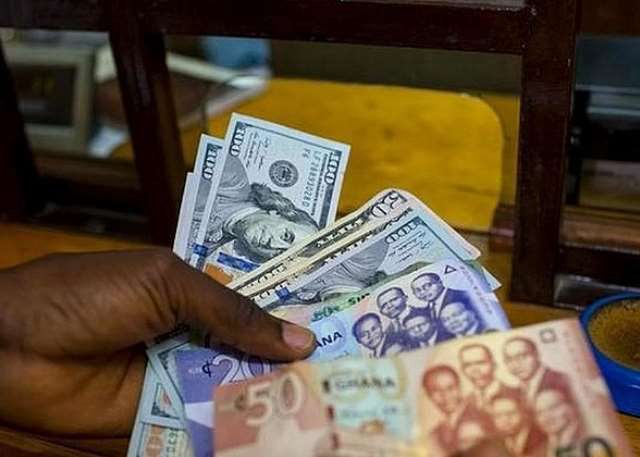The Ghanaian cedi experienced a slight depreciation against the United States dollar on Wednesday, April 9, 2025, according to data compiled from Cedirates.com, a reliable Ghanaian platform for currency and fuel information. The buying rate stood at GHS15.43 per dollar, while the selling rate reached GHS15.86. This indicates a marginal weakening of the cedi, implying that slightly more cedis were required to purchase one US dollar compared to previous periods. This fluctuation in the exchange rate is a common occurrence in the foreign exchange market, influenced by a multitude of factors including global economic conditions, trade balances, and investor sentiment.
Forex bureaus, which provide currency exchange services directly to individuals and businesses, offered slightly different rates. For those exchanging US dollars for Ghanaian cedis, the rate was GHS15.75 per dollar. Conversely, individuals converting cedis into dollars received a rate of GHS16.05 per dollar. This difference, known as the spread, represents the profit margin for the forex bureaus and also accounts for the inherent risks and operational costs involved in currency exchange. The slightly higher rates at forex bureaus compared to the interbank market can be attributed to their smaller trading volumes and the added convenience they offer.
The interbank market, where major financial institutions trade currencies amongst themselves, presented a narrower spread. The buying rate for the US dollar was GHS15.51, while the selling rate was GHS15.53. This smaller difference between buying and selling rates reflects the higher volume of transactions and the greater efficiency of the interbank market. The interbank market rates often serve as a benchmark for other exchange rate providers and reflect the overall market sentiment towards the cedi.
Beyond the US dollar, the Ghanaian cedi’s performance against other major currencies like the British pound and the euro was also tracked. The average exchange rate for the British pound was GHS19.67 for those converting pounds to cedis and GHS20.35 for cedis to pounds. Similarly, the euro traded at an average of GHS16.78 when exchanging euros for cedis and GHS17.49 when converting cedis to euros. These varying exchange rates against different currencies are influenced by the individual economic and political landscapes of the respective countries and their relationship with Ghana.
The Bank of Ghana’s interbank market provided its own rates for the pound and the euro. The pound was selling at GHS19.82, while the euro traded at GHS16.94. These rates, published by the central bank, play a crucial role in setting the tone for the broader currency market. The Bank of Ghana’s interventions, such as buying or selling foreign currency reserves, can influence the cedi’s exchange rate and maintain stability in the foreign exchange market.
Money transfer operators, specifically LemFi and Afriex, offered competitive rates for remittances from the US or the UK to Ghana. LemFi offered a rate of GHS15.33 per dollar, while Afriex provided a rate of GHS15.40 per dollar. For the British pound, LemFi offered GHS19.80, while Afriex provided a slightly lower rate of GHS19.73. Euro transfers via Afriex were priced at GHS16.93 per euro, while LemFi offered a slightly lower rate of GHS16.80. These competitive rates reflect the growing importance of remittances to the Ghanaian economy and the efforts of these operators to attract customers with favorable exchange rates and efficient transfer services.
Finally, for digital subscription payments using Visa and Mastercard for services like Netflix, Spotify, or Apple Music, the exchange rate was GHS16.64 per dollar for both card providers. This specific rate for digital subscriptions might be influenced by the international payment processing fees and agreements between the card companies and the subscription service providers. The slightly higher rate compared to some other channels highlights the various costs associated with international transactions and the complexities of the global financial system.


